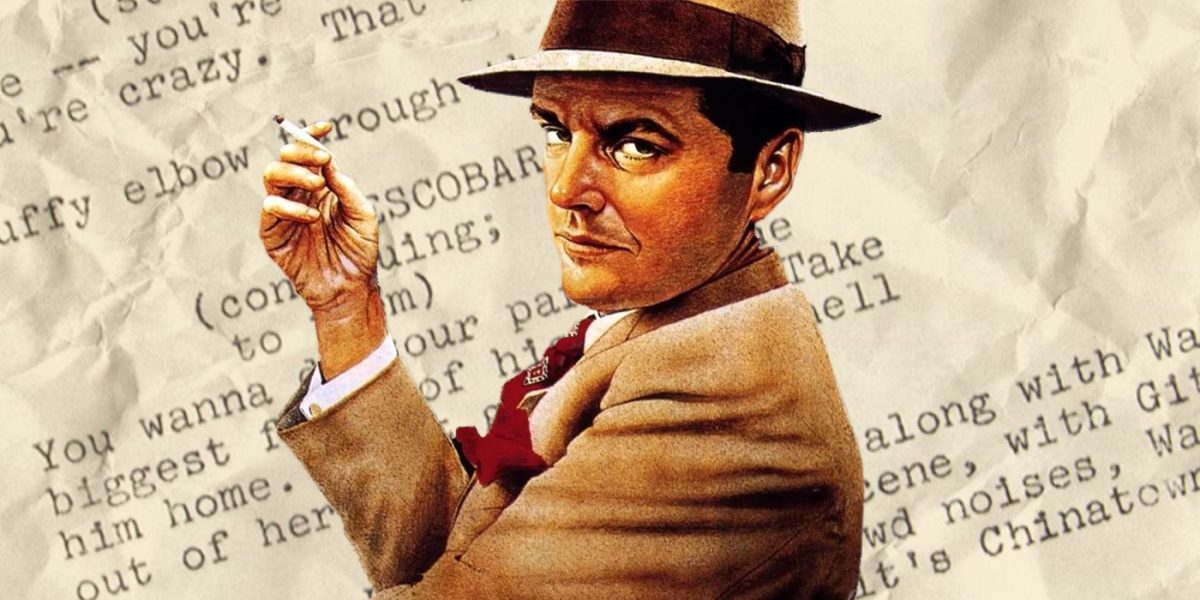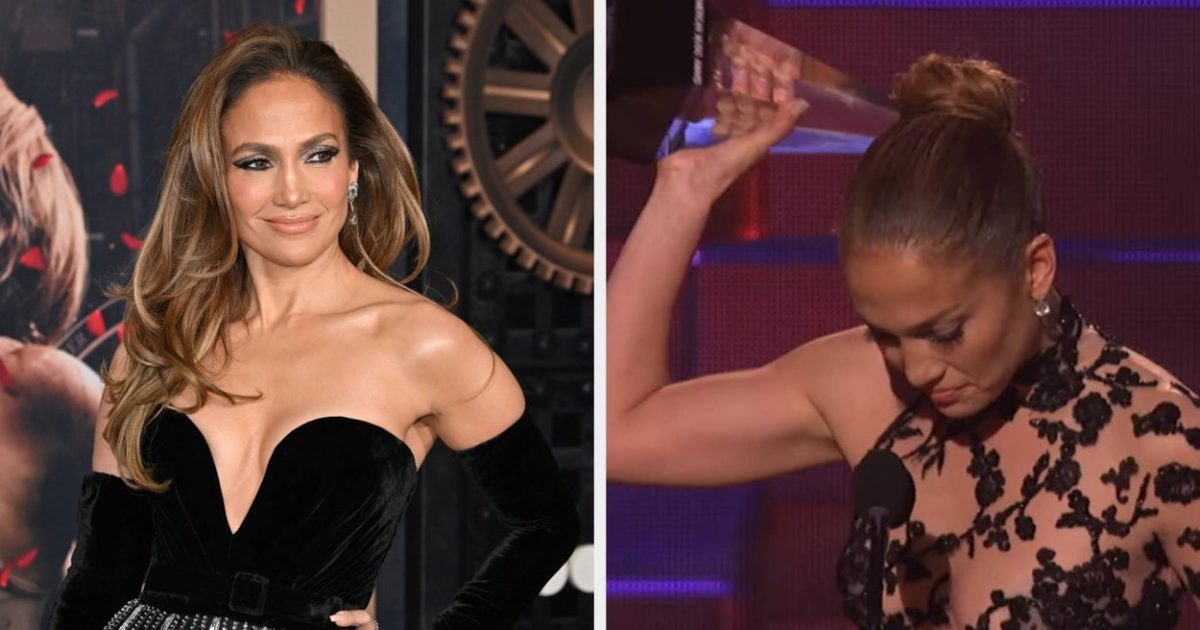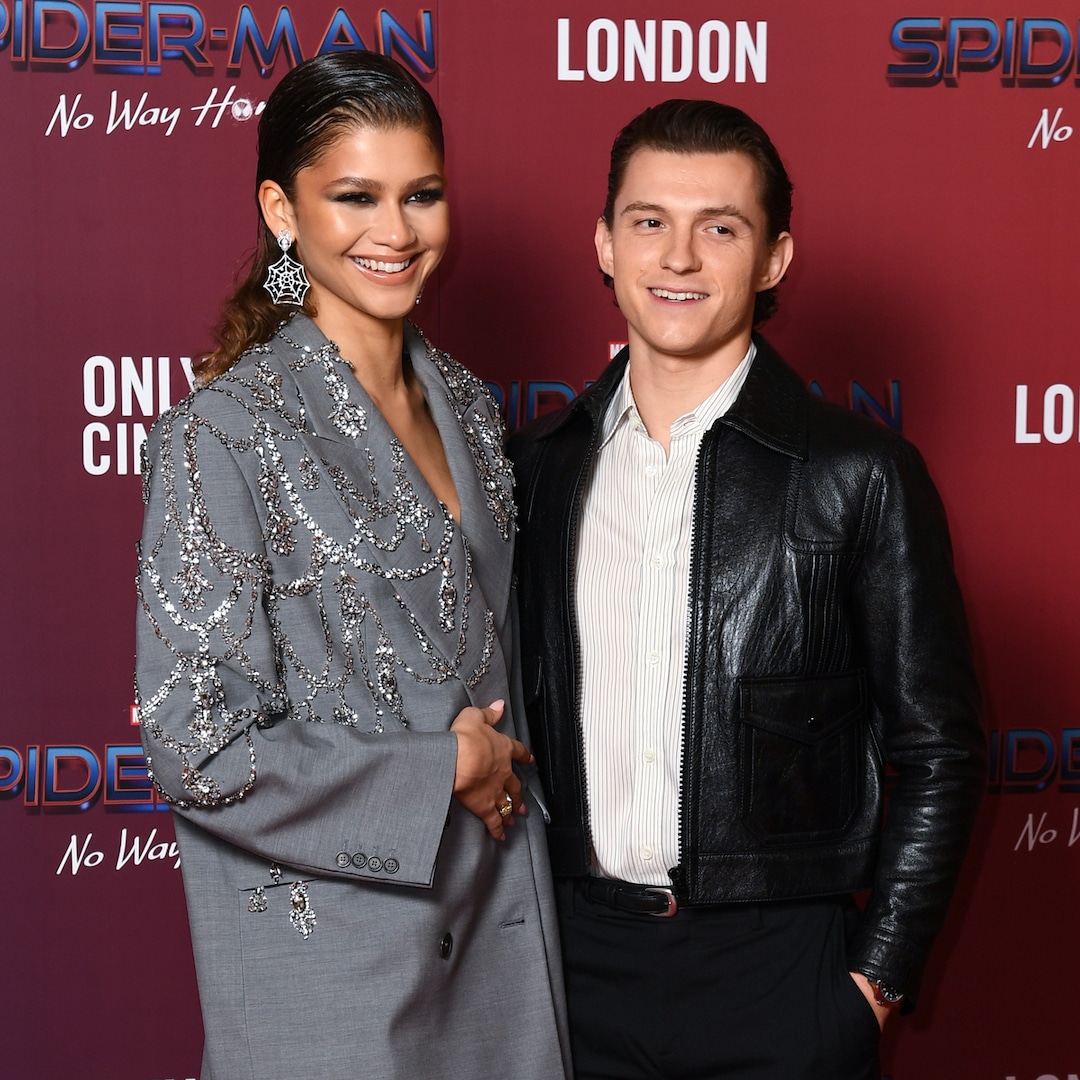
Robert Towne Discusses ‘Chinatown’s Original Ending and How Different It Was Making a Movie in the 70’s
Jun 18, 2024
The Big Picture
In honor of
Chinatown
‘s 50th anniversary and 4K release, Collider’s Steve Weintraub interviews Oscar-winning screenwriter Robert Towne.
During their interview, Towne discusses the challenges faced writing the script, working with John Huston, why Jack Nicholson’s first leading role befuddled him, and the feud with Roman Polanski over the film’s original ending.
Towne also talks about working on
The Godfather
, the script he wrote that was never made, which screenplay was the most difficult as a script doctor, and more.
In honor of Chinatown’s 50th anniversary and its release in 4K this week, Collider’s Steve Weintraub had the opportunity to interview legendary screenwriter and script doctor Robert Towne, whose influential work was a cornerstone of the New Hollywood movement. Throughout his career, Towne was nominated for an Oscar four times, taking the win for Best Original Screenplay for this neo-noir, starring Jack Nicholson and Faye Dunaway, and directed by Roman Polanski. Half a century later, the screenplay for Chinatown is still considered a masterpiece, but the production of the Paramount Pictures feature was not without its challenges.
The genesis of Chinatown, which would go on to earn 11 Oscar nominations, was a desire to depict the Los Angeles that Towne loved so dearly. It was a script that was so important to him, he tells us, that he turned down an offer to adapt The Great Gatsby, a risky decision that would prove to be a wise choice. “Chinatown was a story I needed to tell,” Towne says of the script that took him years, “with many challenges along the way.” Towne also addresses the infamous battle for the dramatic ending between him and Polanski, as well as any pushback from the studio regarding the movie’s darker elements. Despite it all, the screenwriter calls Chinatown “the perfect example of the collaborative process and what can emerge out of the murky soup of filmmaking.”
In addition to Chinatown, Robert Towne recalls which Oscar-winning film underwent the most work as a script doctor, what he contributed to Francis Ford Coppola’s The Godfather, and which of his features he suggests fans start with. Towne also discusses his script that was never made, the one that changed so drastically he gave writing credit to his dog, as well as working with John Huston, why philosophy is so crucial to moviemaking, and advice for aspiring screenwriters.
You can read the full interview in the transcript below.
Chinatown A private detective hired to expose an adulterer in 1930s Los Angeles finds himself caught up in a web of deceit, corruption, and murder.Release Date June 20, 1974 Director Roman Polanski Runtime 130 minutes Writers Robert Towne , Roman Polanski Studio Expand
Robert Towne: Where to Begin?
Image via Warner Bros.
COLLIDER: If someone has never seen anything you’ve worked on, what is the first thing they should start with and why?
ROBERT TOWNE: It depends on what they’re looking to see. Chinatown belongs to a handful of people who were passionate and talented enough to fight for their vision. It’s mine, yes, but it’s also Roman’s and Jack’s, John Alonzo’s, Jerry Goldsmith’s, Anthea [Sylbert’s], Faye’s, and others. The perfect example of the collaborative process and what can emerge out of the murky soup of filmmaking.
The Last Detail shows how actors who know what they’re reading down to the comma can take good material and make it excellent. Shampoo is a great example of a film that is perfectly of its time, with all that that entails. Without Limits has a couple of perfectly cast leads and a boundless heart. Mission: Impossible II was an interesting dilemma for me because, by the time I was involved, the story had to be written with John Woo’s carefully choreographed action pieces already set, and the script had to work around those set pieces while hitting all the right marks.
A lot of people consider you one of the best script doctors. Ever. When did you realize you were good at identifying issues in a script?
TOWNE: Maybe it helped that at Pomona College I studied philosophy rather than screenwriting, had it even existed as a potential major at the time. Philosophy forces you to look more deeply into the subject at hand and tends to make you more sensitive to human folly. Scripts often go south not because of weak plot but because we don’t see our own humanity reflected on the page. Somewhere along the way, the writer lost the thread, stopped listening. When you love movies and can get absorbed in them, or root for a protagonist as shamelessly as I tend to do, any “flaw in the iris” becomes more readily apparent.
Of the scripts you worked on as a script doctor, which ended up being the most work?
TOWNE: Possibly Bonnie and Clyde.
Related How ‘Bonnie and Clyde’ Changed Cinema Overnight This controversial 1967 classic changed the course of American cinema overnight.
Do you have a lot of scripts that you wrote that were never made? And if so, what was the one you wished you’d been able to get off the ground?
TOWNE: There’s one that was never made, and one that was made not to my original intent. That second one, Greystoke, was about a boy raised in the jungle by gorillas, and I had been working on it for eight or more years by the time I had to give the rights away for funds to finish directing Personal Best. It was as much a heartbreaker, as unbearable a professional loss as I’ve ever been through. The script had to do with my own ethics, my philosophical convictions, my helplessness and rage at seeing precious forms of life destroyed. None of that showed up on the screen. It was turned back into a Tarzan flick. I gave the screen credit to my dog, P.H. Vazak, and still feel guilty about it. If he’d known how to type, he would’ve done better by it.
Dancing Bear, loosely adapted from a book by my friend James Crumley, is the script that I’d very much like to see made, and not just because the story as written is a caper. More particularly, it is at its heart a love story between humans and their land, how we nurture it and how it, in turn, nurtures us, and the many obstacles this simple “romance” must face in our modern world as more and more of our natural resources are ploughed under. Plus, it’s a helluva lot of fun, with some of the toughest female characters I’ve written.
You worked a bit on The Godfather script. Did you realize when you were working on it how huge the film would be? When did you realize this movie was going to be massive? Also, what did you contribute to the script?
TOWNE: More than a bit. But the one that’s gotten the most attention is the scene between Don Corleone and his son Michael in the garden, the passing of the torch. And yes, when I first flew to New York, Francis [Ford Coppola] showed me the footage he’d shot, and I said, “Francis, I don’t know what all the bitching is about, I think it’s great.”
Why Jack Nicholson Was “Befuddled” by His First Leading Role
Many consider Chinatown to be one of the best movies ever made. When did you realize this project was going to be special?
TOWNE: Chinatown was a story I needed to tell. So important that I turned down Bob Evans’ offer to adapt Gatsby. But if you’re asking when I thought that other people might actually want to see it, that was during a screening for The Hollywood Reporter and Variety, when the Reporter critic came up and was beyond effusive. And then, of course, the reviews came out.
I read that you and Roman disagreed on the ending. I read you wanted Cross to die and Evelyn Mulwray to survive, but Roman wanted the tragic end. True? And if it is true, do you think his ending was the right choice, or do you still think Faye’s character surviving would have been better?
TOWNE: For some time I continued to believe that my version would’ve been better. It’s been years now that I realized he was right.
One of my favorite things about the script is the way the character J. J. Gittes gets injured by the knife and has to wear a bandage and then stitches for a lot of the film. How much did Jack fight you on this, or was he all in? I know some actors don’t want to hide their faces under something.
TOWNE: If I remember correctly, Jack was amused and befuddled that his first leading man role would involve a surgical bandage and a scar. But no, he never fought it. He saw immediately that it was in service to the script and the character.
Image via Paramount Pictures
How long did it actually take you to work on the script? And were there any big changes that happened along the way?
TOWNE: It took years, and yes, there were many changes along the way. Turns out it was worth it.
Where did the idea come from to fictionalize real events?
TOWNE: At the time, I was living in Benedict Canyon. A developer bought up land in nearby Deep Canyon without much thought to the environment or the future. From the library I’d gotten a copy of Carey McWilliams’ book, Southern California Country: An Island on the Land, and, as I wrote in an essay at some point, no writer had ever spoken to me so strongly about my home. I could smell the orange blossoms and the eucalyptus, feel the warm, dry itch of the Santa Anas on my skin, taste the salt in the air. The Los Angeles of 1937 had that essence, it wasn’t yet fading, and I wanted to capture it before it was gone.
One of the big reveals in the film is finding out Cross raped Evelyn when she was 15. Was there any pushback from the studio or anyone about this? Did anyone ever say, “Can you find another story beat?” Studios are known for trying to water things down, and I’m curious if it was like that back in the early ‘70s or if you feel like you had more freedom.
TOWNE: At the time we did Chinatown, Robert Evans was Paramount. He was the studio. And even at those times when the script was weighted down by pages and events, Evans clearly understood it thematically. He was well aware of the parallel I was trying to draw between the rape of the land and the rape of the girl, which amounted to Cross’s desire to control the future. And yes, the number of people you had to answer to was fewer than it is now. It was, in a way, a simpler business.
How much do you think about budget when writing?
TOWNE: Not at all. And no one who is trying to tell a story should. Worrying about budget is someone else’s job.
Was the title always Chinatown? How close was it to something else?
TOWNE: It was never anything else. The title was always Chinatown. The heart of Jake Gittes’ problems, and the reason he left the police force, was because of what happened a decade earlier in Chinatown.
John Huston is great as Noah Cross. Was he the first choice for the role? Can you talk a little about working with him and what he brought to the project?
TOWNE: I think John was my first and only choice, but as the years pass, I can’t be certain. I was always a great admirer of his body of work. He had a great voice and presence and a dry sense of humor. Any scene he’s in, he’s the one you watch. During the shoot, he kept mispronouncing Gittes’ name, calling him “Gitts,” and Roman left it in because it was such a part of that character.
Image via Paramount Pictures
Another thing I love about the movie is the way John A. Alonzo shot the film in anamorphic widescreen with occasional handheld shots. When you were writing it, did you envision it this way? What was your reaction to the footage the first time you saw it?
TOWNE: I don’t think that way. I’m not writing a scene and thinking “anamorphic widescreen” here, or “handheld” there. But from the moment I watched the footage, I thought it was terrific. I don’t remember there being any question in my mind about that. And in terms of the shots themselves, every one of them was Roman’s choice. He wouldn’t have given control over to anyone.
Screenwriting Advice from Robert Towne
Finally, for all the aspiring screenwriters, any advice you’d like to share about writing a good screenplay?
TOWNE: You’ll never know, when you first sit down to write, if a screenplay will be good or mediocre, or if it’ll exist at all. You can’t really set out to write a “good” screenplay. You muddle through. You tell the story to friends, you listen to see what form it takes, what they respond to, what they don’t. You take that form and turn it into an outline, which then turns into note cards as you write down the details of each scene — and if you can write a scene without saying a word, by all means, do that. Once that’s completed, you ignore those note cards and allow your characters to have free rein, to meander, to suggest, to demand, to destroy. The more formed they become, the more you’ll find your story changing substantially. Sometimes you lead and sometimes you follow. You work and think and rework and rethink, toss out and put back in, and over the months and quite possibly years, something will start to take shape that someone else, at some later juncture, may just call good.
Chinatown is available to own in 4K now. For more information on what this bundle includes, click here.
Image via Paramount Pictures
Image via Paramount Pictures
Watch on Paramount
Publisher: Source link
Jennifer Lopez Finally Understands Mi Gente Latino Meme
Jennifer Lopez Finally Understands Mi Gente Latino Meme Kicking off 2025, J.Lo is now promoting Unstoppable, a new biography drama in which she stars alongside Moonlight actor Jharrel Jerome. At the 2011 American Music Awards, Jennifer won Favorite Latin Artist…
Jan 11, 2025
Tom Holland's Dad Shares Insight Into Zendaya Engagement
Tom Holland became the greatest showman for his proposal to Zendaya. Just days after the Spider-Man actress turned heads at the 2025 Golden Globes with a 5-carat ring on that finger, Tom's dad... Disclaimer: This story is auto-aggregated by a…
Jan 11, 2025
Aubrey Plaza Issues Statement After Jeff Baena’s Death
The 40-year-old star and Jeff’s family issued a statement to People on Monday, where they called their loss an “unimaginable tragedy.”The Los Angeles County coroner’s office previously determined that Jeff died by suicide in his LA home. He was 47…
Jan 10, 2025
Jill Duggar’s Husband Clarifies Where He Stands With Jim Bob Duggar
Jessa Duggar (m. Ben Seewald)Jim Bob and Michelle's fifth child, Jessa Duggar, was born Nov. 4, 1992. Jessa met Ben through church and he began courting her in 2013—the old-fashioned approach to romance coming as a brand-new notion to a lot…
Jan 10, 2025











